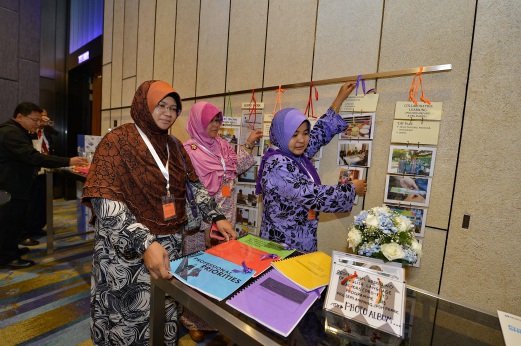Bold step forward
Professor Tan Sri Dato' Dzulkifli Abdul Razak
Learning Curve: Perspective
New Sunday Times - 22-6-2014
THE launch of the National Education Blueprint two years ago prompted the question: Will it be implemented as detailed in the plan?
Many noted that we often produce good plans, but cannot translate them well enough, if at all. This perception, whether right or wrong, has become a dark cloud hovering over the blueprint.
And it must be quickly dispersed if confidence in the future of education in the country is to be firmly restored. Indeed, one international expert on education was quoted as saying it now depends on how the blueprint will be implemented.
Last week, Deputy Prime Minister Tan Sri Muhyiddin Yassin, who is also Education Minister, launched The 2013 Annual Report on the Education Blueprint. This is the first annual report card of sorts that is meaningful and highly symbolic for a number of reasons.

Participants at the recent British Council Professional Up-skilling of English Language Teachers (Pro-ELT) Showcase event.
It is, foremost, a clear indication of the aim to get the blueprint implemented. Similar to the functions of Performance Management and Delivery Unit (PEMANDU), the Education Performance and Delivery Unit (PADU) has been set up to monitor the implementation of the blueprint.
Secondly, the report marks the willingness to be transparent as part of public responsibility for assessing the progress made last year.
Thirdly, it serves as part of a continuing process to engage the public, namely parents, the teaching profession and other stakeholders in the progress so far.
Fourthly, it is a form of recognition of achievements as well as a reminder that there is more to be done.
Lastly, the annual report can be a start of a new culture of sharing and openness in matters related to education in a non-politicised way.
After all, this is information objectively assessed against set targets backed by data. For example, out of the 25 initiatives implemented last year, 12 have seen positive and significant performance by achieving some of the Key Performance Indicators (KPI). Among these initiatives are pre-school enrolment, vocational education transformation plan, higher order thinking skills, literacy and numeracy skills, and English language teachers proficiency.
The first two initiatives mentioned above are to address the issue of access which is one of the aspirations stated in the blueprint. The remaining relates to other aspirations such as acquiring thinking skills, knowledge and bilingualism.
On the dimensions of equity, two initiatives – the District Transformation Programme and Inclusive Education Programme – are said to show encouraging achievements.
Yet two other initiatives in terms of efficiency, namely Ministry Transformation and Basic Infrastructure Enhancement, also achieved the KPI set. So, too, the transformation of teacher education institutes, as well as the establishment of school leadership and teachers’ charter in the effort to enhance quality. Parent involvement is also on the rise.
While many of these are quantifiable as KPIs to be achieved, there are aspects that are not easily measured. These are aspirations such as promoting “ethics and spirituality”, “national identity” and “unity”.
An initiative on “unity” – the Student Integration for Unity Plan – was implemented last year but it takes time to achieve a noticeable outcome before it can be convincingly reported.
These “softer” aspects must receive equal – perhaps much more – emphasis, given the different nature of tracking and measuring “intangibles” which cannot be quantified using figures and percentages.
It, however, cannot be overemphasised that these are aspirations that will underline the success of the education transformation in more lasting and sustainable ways because they shape attitudes, build the right values and virtues to be internalised as part of the acculturation process in creating a good learner, citizen as well a wholesome person as stated in the blueprint and the National Education Policy.
It is imperative to reiterate that education has to move beyond academic achievements – regardless of excellence – but, at the same time, it must not fail in actualising the other potentials of a holistic human being. In other words, education, too, must be in itself holistic in content, delivery and measurement.
While the report is laudable as a positive first step in casting away any scepticism about the implementation of the blueprint, it must embrace all the aspirations stated therein in moving ahead. Kudos for taking this bold step forward.
